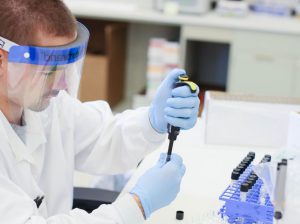Drug testing laws are complex, inconsistent, and constantly changing based on legislative and court decisions. Specifically, there has been a lot of movement regarding state marijuana legislation in the past several years. Today, 30 states and Washington, D.C. have comprehensive medical marijuana laws, and 9 states and Washington, D.C., have recreational marijuana laws. Although companies turn to drug-free workplace programs to help keep their employees safe and productive, many now have questions about how medical marijuana impacts those programs.
In our webinar, Faye Caldwell, a highly-regarded industry expert and Managing Partner at Caldwell Everson, discussed recent laws, current trends, and state marijuana legislation. She also shared examples of how state laws can affect your workplace drug testing policies and procedures.
Seven key takeaways from our webinar include:
- One of the biggest questions remains: Is the employer required to accommodate off-duty medical marijuana use? Generally, employment protections in state legislation and statutes fall into four categories with a wide range of guidance: (1) states explicitly providing no employment protections; (2) states with explicit employment protections; (3) states with likely no employment protections; and (4) states with unclear employment protections. Recreational marijuana laws differ from medical marijuana laws, with states explicitly providing no employee protections.
- Before 2017, the courts generally found no duty to accommodate medical marijuana use. However, a current trend indicates that more states are providing explicit employment protections for medical marijuana. Currently, 12 states have explicit protections in their medical marijuana statutes. The National Conference of State Legislatures website is one way to stay current on state medical marijuana laws. Remember that an employer never has to accommodate on-duty drug use or impairment.
- There is no consensus to define impairment for marijuana. Some states, such as West Virginia and Pennsylvania, do have per se laws for safety-sensitive positions using a blood test.
- Employers proactively protect themselves from hiring candidates who use drugs using pre-employment testing. Testing and any action taken based on results should occur before applicant begins working. If an applicant begins working before the pre-employment drug test is performed, he or she may be considered an employee entitled to more protections. Some states do have limitations for this reason for testing. For example, Connecticut, Maine, and Minnesota require written notice prior to pre-employment testing.
- Random drug testing can be a strong deterrent to drug use. Carefully consider how you define a “safety-sensitive employee” and who is tested in the random test pool. It’s critical to eliminate any perception of targeting certain employees. Rhode Island, Vermont, Boulder, CO, and San Francisco, CA, prohibit random drug testing.
- Unlike other specimen types, hair drug testing provides up to a 90-day detection window. It is still prohibited in some states, but recently several states, including Iowa, Louisiana, and Maine, updated their laws to permit hair testing in certain circumstances.
- Using a Medical Review Officer (MRO), even if not required, offers more protection for both the donor and the employer. An MRO “is a licensed physician who is responsible for receiving and reviewing laboratory results generated by an employer’s drug testing program and evaluating medical explanations for certain drug test results,” according to the U.S. Department of Transportation.
In conclusion, employers should consider multiple factors, such as an employee’s state of residency, where employees work, states where a company does business, where the drug test collection occurs, and applicable state and federal drug testing laws when implementing a workplace drug testing program. As Ms. Caldwell reminded the audience, “Drug testing is not one size fits all.”
Watch a recording of this webinar or other webinars presented by Quest Diagnostics.
To learn more about drug testing, visit our website or connect with us online.
 Your Privacy Choices
|
Privacy Notices
|
Terms
|
Language Assistance / Non-Discrimination Notice | Asistencia de Idiomas / Aviso de no Discriminación | 語言協助 / 不䈚視通知
Your Privacy Choices
|
Privacy Notices
|
Terms
|
Language Assistance / Non-Discrimination Notice | Asistencia de Idiomas / Aviso de no Discriminación | 語言協助 / 不䈚視通知



















Drug testing laws are complex, inconsistent, and constantly changing based on legislative and court decisions. Specifically, there has been a lot of movement regarding state marijuana legislation in the past several years. Today, 30 states and Washington, D.C. have comprehensive medical marijuana laws, and 9 states and Washington, D.C., have recreational marijuana laws. Although companies turn to drug-free workplace programs to help keep their employees safe and productive, many now have questions about how medical marijuana impacts those programs.
In our webinar, Faye Caldwell, a highly-regarded industry expert and Managing Partner at Caldwell Everson, discussed recent laws, current trends, and state marijuana legislation. She also shared examples of how state laws can affect your workplace drug testing policies and procedures.
Seven key takeaways from our webinar include:
In conclusion, employers should consider multiple factors, such as an employee’s state of residency, where employees work, states where a company does business, where the drug test collection occurs, and applicable state and federal drug testing laws when implementing a workplace drug testing program. As Ms. Caldwell reminded the audience, “Drug testing is not one size fits all.”
Watch a recording of this webinar or other webinars presented by Quest Diagnostics.
To learn more about drug testing, visit our website or connect with us online.